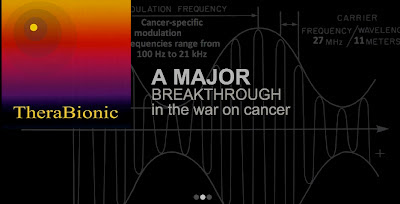BUSINESS OVERVIEW
The Company is focused on the commercialization of its first oncology application: treatment of advanced hepatocellular carcinoma. It has completed a phase II study, which shows a high degree of effectiveness as well as excellent tolerability, even in previously treated patients with severely impaired liver function. The company has designed a phase III registration trial, which has been approved by the FDA and will be initiated upon funding. Following successful completion of the phase III registration trial, the company expects to file for FDA approval for the treatment of advanced hepatocellular carcinoma. In 2012, the Company plans to initiate a phase II trial for the treatment of advanced breast cancer.
PRODUCT OVERVIEW
The TheraBionic technology is based on a platform technology which has been used in the treatment of several hundreds of patients enrolled in clinical studies in the US and Europe. Since 2001 the two main developers of this technology, Boris Pasche and Alexandre Barbault, have developed novel proprietary biofeedback devices and methods, which allowed for the identification of tumor-specific frequencies. In collaboration with Dr. Niels Kuster, a leader in the field of bioelectromagnetics, they have designed and filed a patent for a novel device (OncoBionic P1), which delivers electromagnetic energy with markedly higher precision. Successful completion of a feasibility study in patients with advanced cancer as well as a phase II study in patients with advanced hepatocellular carcinoma conducted at the University of São Paulo in Brazil have paved the way for the registration trial. Given this treatment’s superior tolerability and efficacy as compared with current anticancer therapie, TheraBionic is expected to rapidly become a leader first in the treatment of hepatocellular carcinoma, then in other tumor types.
TheraBionic Publications
Blackman, C.F.
Treating cancer with amplitude-modulated electromagnetic fields: a potential paradigm shift,
again?
British Journal of Cancer 2012, 106:241-241
http://www.nature.com/bjc/journal/v106/n2/full/bjc2011576a.html
Treating cancer with amplitude-modulated electromagnetic fields: a potential paradigm shift,
again?
British Journal of Cancer 2012, 106:241-241
http://www.nature.com/bjc/journal/v106/n2/full/bjc2011576a.html
Zimmerman, J., Pennison, M., Brezovich, I., Yi, N., Yang, C.T., Ramaker, R., Absher, D., Myers,
R.M., Kuster, N., Costa, F.P., Barbault, A., Pasche, B.
Cancer cell proliferation is inhibited by specific modulation frequencies
British Journal of Cancer 2012, 106:307 – 313
http://www.nature.com/bjc/journal/v106/n2/full/bjc2011523a.html
R.M., Kuster, N., Costa, F.P., Barbault, A., Pasche, B.
Cancer cell proliferation is inhibited by specific modulation frequencies
British Journal of Cancer 2012, 106:307 – 313
http://www.nature.com/bjc/journal/v106/n2/full/bjc2011523a.html
Costa, F.P., Cosme de Oliveira, A., Meirelles Jr, R., Machado, M.C.C., Zanesco, T., Surjan, R.,
Chammas, M.C., de Souza Rocha, M., Morgan, D., Cantor, A., Ivan Brezovich, Niels Kuster,
Barbault, A., Pasche, B.
Treatment of advanced hepatocellular carcinoma with very low levels of amplitude-modulated
electromagnetic fields
British Journal of Cancer 2011, 105: 640-648
PMID 21829195
http://www.nature.com/bjc/journal/v105/n5/full/bjc2011292a.html
Chammas, M.C., de Souza Rocha, M., Morgan, D., Cantor, A., Ivan Brezovich, Niels Kuster,
Barbault, A., Pasche, B.
Treatment of advanced hepatocellular carcinoma with very low levels of amplitude-modulated
electromagnetic fields
British Journal of Cancer 2011, 105: 640-648
PMID 21829195
http://www.nature.com/bjc/journal/v105/n5/full/bjc2011292a.html
